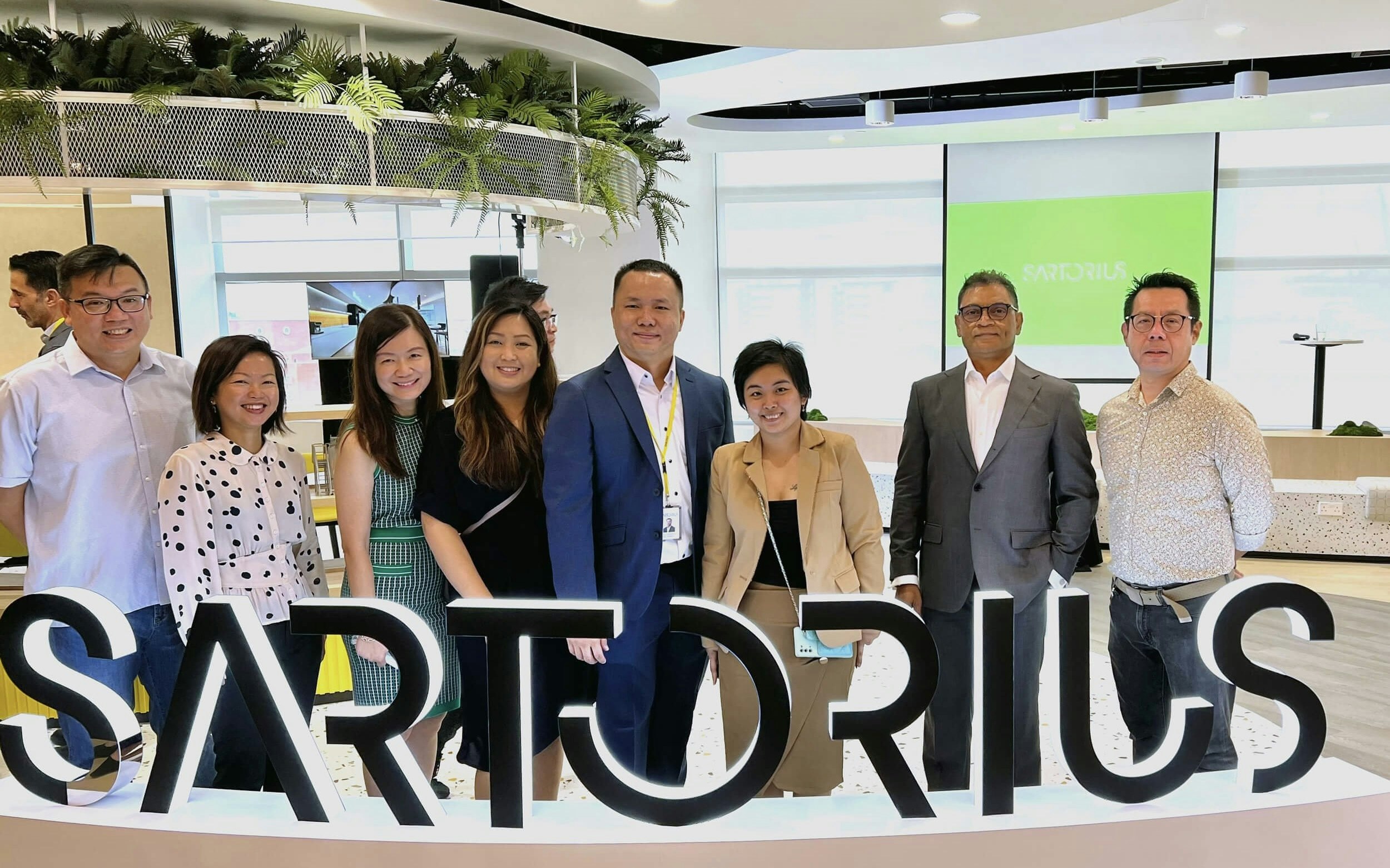Prognosen
AI in 2024: Revolutionary Technology or Major Disappointment?
The rapid development of Artificial Intelligence in 2023 has raised high expectations that this technology could make us more efficient and productive. Now the question arises whether these expectations can be met.

More and more companies are turning to Artificial Intelligence (AI) and exploring its impact on their business model. But in 2024, it will become serious for the AI providers and investors who invest large sums in the technology. Can AI really make us more efficient, creative, and productive? Who are the winners and losers? And which factors play a role in this?
To answer these questions, we consider the development from three perspectives. In many companies, AI assistants will be introduced into offices in the coming months. Microsoft and Google are launching their co-pilots for business applications on a large scale. These are meant to support us in email, word processing, or online conference programs, for example, by writing text drafts, summarizing content, or transcribing meetings.
According to the providers, the so-called copilots promise a significant increase in productivity. However, Microsoft and Google charge 28 euros per month for this, which means annual costs of almost 340,000 euros for a medium-sized company with 1000 employees. Maintenance and training costs are added to this as well. The big questions for entrepreneurs and managers are: Who can afford it and who can afford not to invest?
The Fear of Fixed Costs and Concern about the Effectiveness of AI Assistants Arise Doubts. It is quite possible that the tools will not save us work as expected, but rather overwhelm us with even more emails, LinkedIn posts, and logs.
The Horror Scenario for Business AI in 2024 is the Content Collapse. A wonderful cartoon is already circulating in social networks, which humorously depicts this problem. It shows a man and a woman sitting in front of a screen. The man proudly says, "I write three key words, and the AI turns it into this long text!" The woman replies with a smile, "I give the AI this long text, and it shortens it to three key words!"
AI can not only be inaccurate, but also flawed. The Cambridge Dictionary's Word of the Year 2023 was "hallucination" for a reason. It refers to generative language AIs that frequently produce misinformation and present it as facts, especially when there is a lack of sufficient training data on a specific topic.
Whether AI actually makes us more efficient depends heavily on whether we can rely on the tools. The bad news is that hallucinating in itself is an unsolvable problem for many experts. The good news is that there are at least three ideas on how to deal with it.
One of the problems is that AI assistants often make their statements with great confidence. By providing additional information about the probability of correctness or the training data, users can better assess the information. Another possibility would be to improve the AI models not only with the developers but also through the combination with other data sources.
An example of this is the so-called Retrieval-Augmented Generation (RAG) method, which uses specific company data to optimize language-based AI systems. In this process, user queries are answered based on this data. Although the method is still being tested, AI researchers see it as a promising opportunity to increase the reliability of AI tools.
It is crucial whether AI tools are able to answer company-specific questions and perform tasks constantly. A well-thought-out data management plays a central role in this. An example of this is the RAG procedure.
Generally, large companies seem to have an advantage here, as in-house developments, such as those driven by Bosch for example, can only be implemented by companies with their own AI specialists. Microsoft's Copilot, for instance, is only available to companies with at least 300 employees, and discounts are only available for large corporations.
The danger exists that the AI revolution may become a threat to small and medium-sized businesses in Germany. However, the technology can also become a competitive advantage for these companies. Smaller businesses are often better able to adapt and implement new technologies.
The servicing of this customer group could thus become an attractive business model for European AI start-ups, similar to examples in other industries such as the HR software provider Personio from Munich or the ERP software provider Xentral from Augsburg.
In 2024, we will therefore see a large field study, in which some companies rely on in-house developments while others try to combine technologies from different providers. Even though OpenAI, the developer of ChatGPT, has had a significant lead in recent months, market dominance in the field of generative AI will not be taken over by a single company, similar to what Google has done in the search engine industry.
Instead, companies can also rely on US companies like Microsoft and OpenAI or on European companies like Aleph Alpha from Heidelberg or Mistral from Paris.
The latter under the open-source license, which allows developers to customize the software according to the specific needs of their customers. Even a combination of different providers is possible. SAP even plans to automate and optimize this process.
It is therefore crucial to have different partners for the most successful implementation of AI tools and not simply adopt the technology through "plug & play". The successful application of AI will be much more complex than automation suggests.
This also raises the question of how skilled employees are in using the new tools. In the end, it will become evident whether the expectations of the business for technology providers will be fulfilled in 2024, depending on incremental improvements in technology and successful implementation.
The concerns that Artificial Intelligence (AI) will lead to massive job losses have intensified in the past year. According to the consulting firm McKinsey, 60 to 70 percent of today's job tasks can be automated by AI.
Many companies therefore see the opportunity above all to increase productivity through the use of AI. Experts repeatedly emphasize that technological advances in the past have led to more, rather than fewer jobs. However, this statement should be taken with caution.
On the one hand, this does not necessarily mean that all jobs will be preserved. Instead, new technologies often create completely new jobs that may need to be performed by employees with different skills than the tasks that are being eliminated. On the other hand, it is not clear how long the transitional phase will last and what the overall job balance will look like during this time.
The futurist Amy Webb from the Future Today Institute points out that it is still too early to make reliable predictions about the development of jobs in the context of AI. She emphasizes that we are in a transition phase in which many people will lose their jobs - whether due to the implementation of AI or to cut costs for companies.
Despite nobody wanting to say it, there is a danger that many jobs will be lost. Webb also predicts that some of the new jobs may not last long, as we transition from one era to another and it will take some time to adapt the workforce.
However, it must not be forgotten that the AI transformation in Germany is happening during a time of skilled labor shortage. This means that the probability of being replaced by AI is relatively low. Instead, the danger is greater of being displaced by another employee who is better at handling AI.
For companies and employees, this means that further education and retraining will be one of the biggest challenges in the near future. Therefore, companies that want to remain competitive in the context of AI must invest in training their employees, as the market for already qualified professionals will be too small.
The best prospects for a job are those who further educate themselves in the application of AI tools and quickly learn how to use them optimally. Instead of resisting the AI transformation, employees should engage with it and demand further training from their employers.
In the end, the success of the AI transformation will not depend solely on technology, but above all on ourselves. It will require a lot of work to fully exploit the opportunities of AI and minimize possible risks. A crucial factor, which has so far been underestimated, is employee benefit.
It is conceivable that in the future, job applicants will ask for AI tools in addition to traditional benefits such as company iPhones and home office. Who would want to work in a company where they still have to answer their own emails? The AI transformation is therefore not only a technological revolution but also an opportunity for companies to present themselves as attractive employers.









